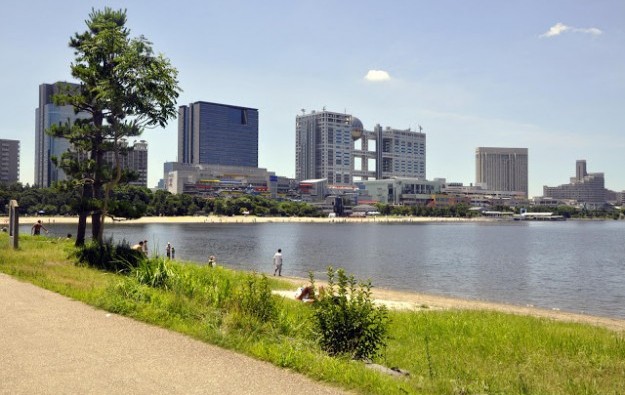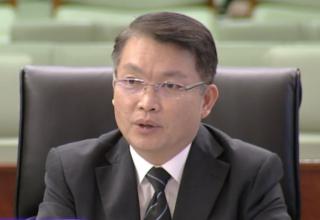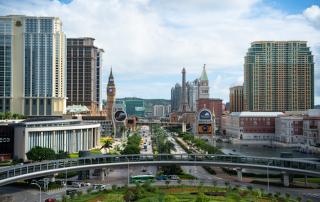Japan casino licensees face 2-step selection procedure
Aug 18, 2014 Newsdesk Japan, Latest News, Top of the deck

If Japan legalises casino gambling the approval of casino licences should be done through a 2-step process that would involve the Japanese central government and “municipal bodies”, says Masayuki Fukuda, a partner at Nagashima Ohno and Tsunematsu, one of the ‘Big Four’ law firms in Japan.
A bill to legalise the industry is pending in the Diet, the country’s parliament. The Cabinet Committee of Japan’s lower chamber started discussions in June on the enabling bill – known as the Integrated Resorts (IR) Promotion Bill – but parliament is currently in recess until the autumn.
“Under the bill, step one will be for the Japanese government to select the appropriate IR area from the municipal bodies that put themselves forward as candidates. Step two will see the selected municipal body publicly tender and select a private IR/casino operator,” Mr Fukuda wrote in a paper submitted to the specialist publication International Financial Law Review.
It is yet to be decided which minister or ministry will have the power to select the IR area, “but the Prime Minister and the cabinet office are the most likely candidates,” the lawyer added.
Several local governments in Japan have been reported as expressing interest in hosting an integrated resort, including those of Hokkaido, Chiba, Kanagawa, Osaka, Nagasaki, Miyazaki, and Okinawa.
The results of an online survey released last month by Japanese advertising and public relations agency Hakuhodo Inc indicated the waterfront Odaiba district in Tokyo (pictured) was the most popular location for a casino resort in Japan. However, Yōichi Masuzoe, governor of Tokyo, said in June that casino resorts were “not a priority” in terms of his administration of Japan’s capital city.
Whatever the decision from a municipal body, the operator would have “to be licensed and supervised directly by the Japanese government or its agency to develop and operate the IR/casino,” suggested Mr Fukuda’s paper, which is included in the September issue of IFLR.
The approval procedure could also imply a two-tier taxation system. Under the proposed IR bill, the Japanese government and the relevant municipal body “may levy and collect certain fees from those developing and operating casino facilities,” wrote Mr Fukuda, adding that the legal nature of those fees or taxes “is not yet clear”.
Casino legalisation in Japan will be a two-statute process. After an enabling bill legalising casino resorts at the conceptual level, a second piece of legislation would detail the specifics, including how they are administered and regulated.
Mr Fukuda suggested that once the IR bill is passed by the Diet, a special body headed by Japanese Prime Minister Shinzo Abe could “within a year draft a bill for the Law on the Execution of IR Areas (IR Execution Law)”.
“Once the IR Execution Law is approved by the Diet, licensing and other processes that are necessary for setting up IR areas and IRs will commence,” he added.
Partnering locals
Taking into consideration the time for construction of large-scale projects, the opening of the first casino resorts in Japan “will take place four years from now at the earliest,” Mr Fukuda wrote.
The Japanese government last month confirmed plans to set up a new body that would coordinate the different agencies working on the legalisation of casino resorts. It is hoped the move could speed up the process and enable the first such venues to open in time for the Tokyo Olympics in 2020.
While the IR bill does not state a limit, the Japanese government has indicated that the number of integrated resorts will initially be limited to only a few. Hong Kong-based brokerage CLSA said in a report in February that the Japanese government was likely to approve in the first phase of casino liberalisation two large resorts in major cities, and a smaller regional venue.
As reported in June by GGRAsia, some pro-casino Diet members have showed interested in having foreign casino operators involved in integrated resorts in the country. That would eventually be in partnership with “Japanese listed blue-chip corporations,” said Mr Fukuda.
Japan’s Kyodo News press agency reported on Monday that Keikyu Corp is aiming to open a casino resort facility to tap an increase in foreign tourists. Keikyu operates in transportation, real estate, leisure services and retailing.
The company said it plans to build its project on Yamashita pier in Yokohama or in Tokyo’s Odaiba waterfront area, Kyodo reported.
All the big Las Vegas operators as well as Macau operators Galaxy Entertainment Group Ltd, Melco Crown Entertainment Ltd and SJM Holdings Ltd have expressed an interest in the Japan market.
According to Mr Fukuda, a consortium involving a foreign operator and a local company would be at an advantage in terms of fund-raising and sharing the know-how that is necessary for the development and operation of large-scale IRs.
Hiroyuki Asakawa, an analyst at Tokyo-based Fisco Ltd, said in a report this month that the initial investment in an integrated resort could be over JPY1 trillion (US$9.8 billion) in the Greater Tokyo area.
Mr Fukuda suggested that normal debt financing might not be available in the earlier stages of development of casino resorts, given the “fluctuating and uncertain nature of the cash flow of the casino/IR businesses”.
“It is likely that the prominent methods of financing will be junk bond financing in the U.S., and equity or corporate finance,” he added.
Related articles
-
 DigiPlus says in final stages for...
DigiPlus says in final stages for...Nov 21, 2024
-
 Cabo Verde govt cancels Macau Legend...
Cabo Verde govt cancels Macau Legend...Nov 19, 2024
More news
-
 GKL provides its new table game...
GKL provides its new table game...Nov 22, 2024
-
 The Baron Upright, a new cabinet from...
The Baron Upright, a new cabinet from...Nov 22, 2024
Latest News
Nov 22, 2024
Casino operator Grand Korea Leisure Co Ltd (GKL) says it has achieved its first commercialisation of a new-to-market table game, developed via an in-house competition dating to 2021. Grand Korea...Sign up to our FREE Newsletter
 (Click here for more)
(Click here for more)
Pick of the Day
”As we navigate the final steps of the licensing process, we remain confident in our ability to align with Brazil’s regulatory requirements”
Eusebio Tanco
Chairman of DigiPlus Interactive
Most Popular
 Macau to get 36mln visitors in 2025: Secretary Lei November 21, 2024
Macau to get 36mln visitors in 2025: Secretary Lei November 21, 2024  Gaming technology firm IGT reports hacking incident November 21, 2024
Gaming technology firm IGT reports hacking incident November 21, 2024  EBITDA a focus in Macau market share battle: Jefferies November 21, 2024
EBITDA a focus in Macau market share battle: Jefferies November 21, 2024  Macau 2025 GGR could top US$30bln govt forecast: Citi November 20, 2024
Macau 2025 GGR could top US$30bln govt forecast: Citi November 20, 2024  Macau big-event outdoor venue gets trial run Dec 28: CE November 20, 2024
Macau big-event outdoor venue gets trial run Dec 28: CE November 20, 2024









